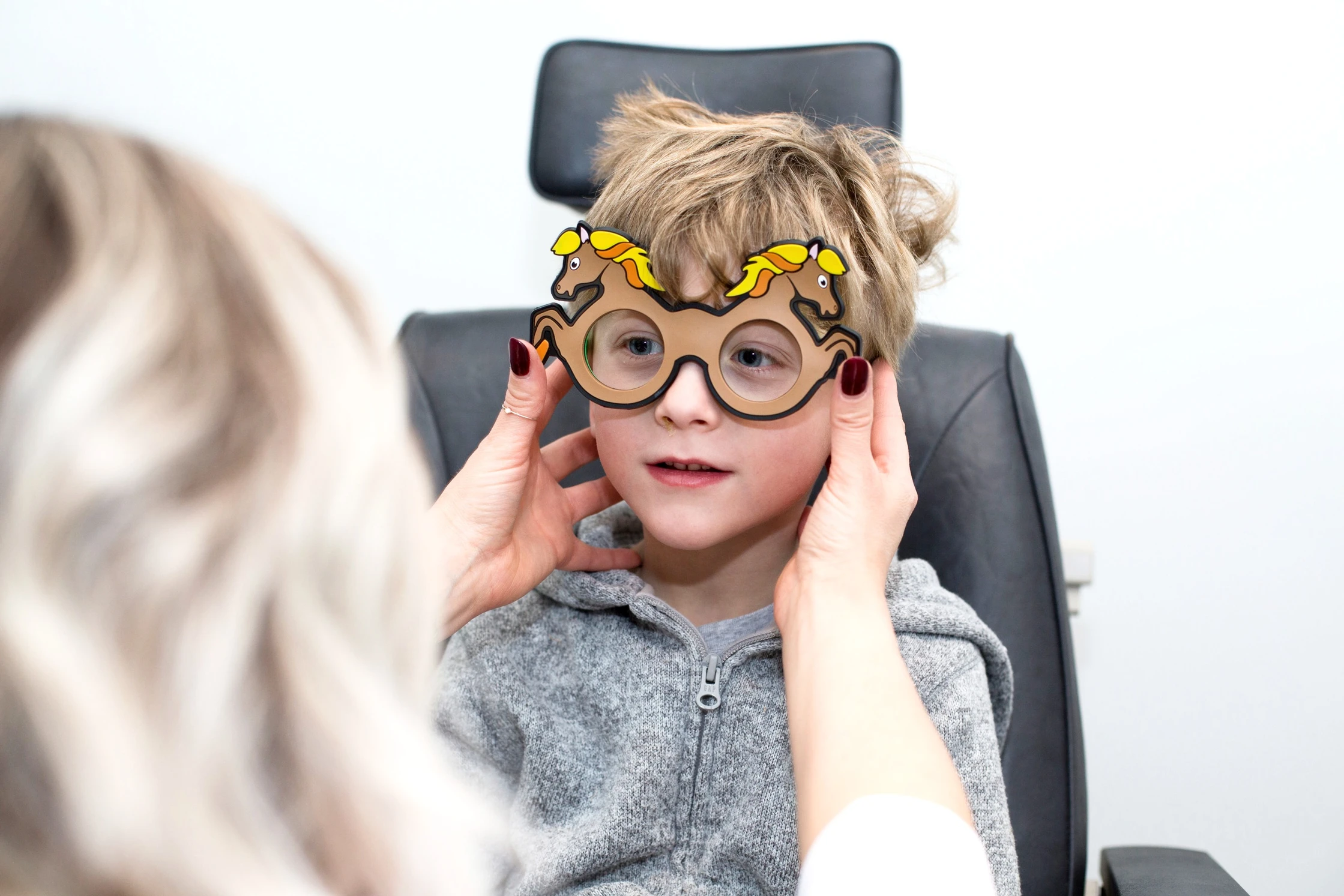
Visit Us Or Call Us Today
SCHEDULE YOUR APPOINTMENT WITH OUR EXPERT TEAM NOW

Good vision is extremely significant in a child’s development, success in education and overall well-being. The vision system is not fully formed in babies and young children, and equal input from both eyes is necessary for the brain’s vision centers to develop normally. If a child’s eyes cannot send clear images to the brain, his or her vision may become limited in ways that they cannot correct later in life. Clear vision paramount, but the ability for the two eyes to work together as a team is equally critical. If we can detect vision problems early, it is usually possible to treat the child successfully.
A vision screening can reveal very large vision problems and is usually performed by volunteers with minimal training. These screenings are wonderfully beneficial in identifying a particular group of patients. However, they are not a substitute for the need for a comprehensive eye examination performed annually. Screening does not fully identify many binocular vision impairments, nor does it evaluate eye health in any way. Our goal is to ensure eyes are healthy, clear and efficient!
Many learning delays and reading problems are related to disruptions in the visual processing path. If a child’s eyes are not working as a team, it can lead to losing place while reading, poor reading comprehension and speed, double vision, headaches, and many other symptoms that interfere with optimal learning. This uncomfortable need on the eyes can also manifest as behavioral problems. The eyes are the leading sensory system in the body. If they are not interpreting the world around them successfully, it can be very difficult for the child to comfortably navigate surroundings.
If eye turning, uneven pupil size, and differences in pupil color in the photo are observed, the child should be evaluated immediately by an eye care professional. Squinting, head turns, and head tilts are common compensatory mechanisms for children with vision issues. In addition, covering the eyes, close to the target and headaches can be manifested. A comprehensive eye examination every year is essential to detect subtle visual complications and ensure long-term eye health.